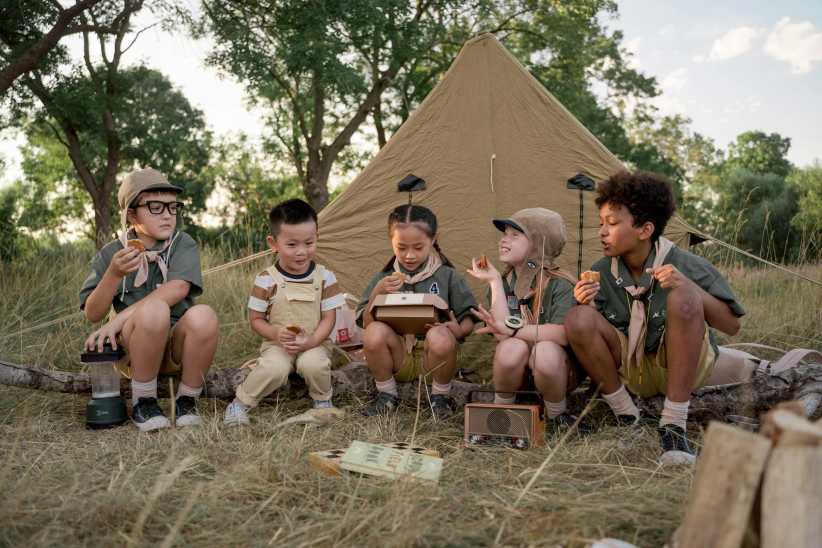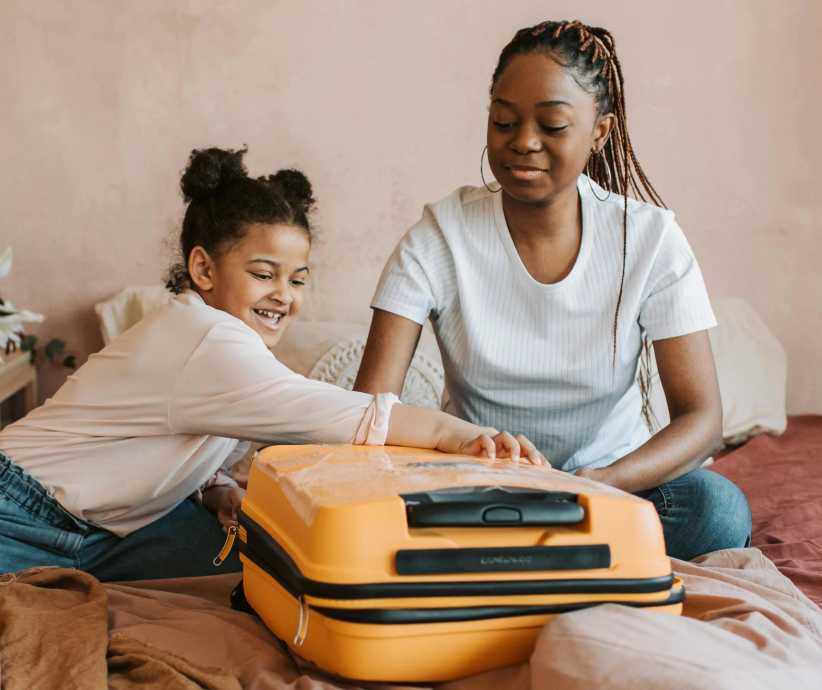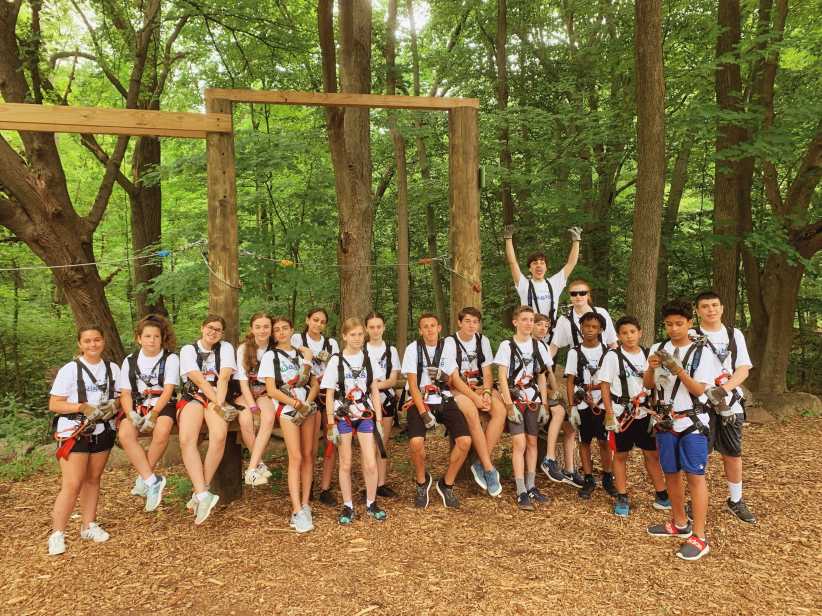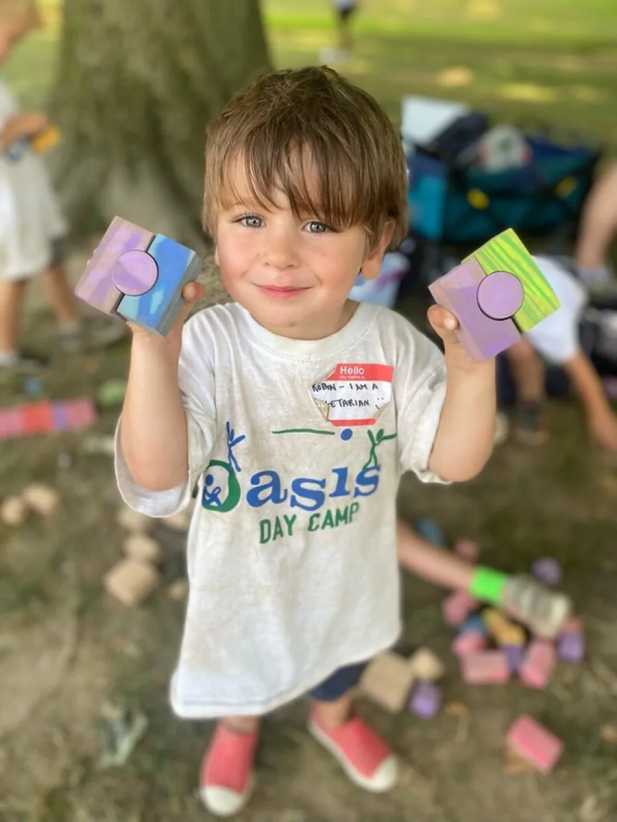
Whether you are in the beginning of your summer camp search or have already decided on a camp for your child, you may have many questions for the camp directors such as what activities are offered and what type of food the camp serves. Camp directors are always happy to answer your questions but have you ever wondered about those things that camp directors really want you to know about the camp
experience? We spoke with a few camp directors about what they wish all parents knew about camp.
Don’t over analyze camp photos and videos: If your child’s camp posts online photos and videos, try not to obsess about what your child looks like in the photos or that your child isn’t in enough photos. “If your child is in the background or not smiling, it doesn’t mean that was what she was doing all day,” comments Sam Borek, owner and director of Woodmont Day Camp in New City, NY. “Often times, parents see the photos and start extrapolating about the day. Photos and videos capture a moment and not the whole story.”
Keep in mind that camp mirrors real life: “Some parents expect camp to be a utopia when that’s just not the reality. There will be good and bad times,” says Michael Baer, owner and director of co-ed overnight camps Chipinaw and Silver Lake in Swan Lake, NY. “There will be campers that don’t get along. I teach all my campers that they don’t have to be best friends with everyone but you have to respect each other and treat people how you want to be treated. There will come a time when your child will be at work and may not like the person in the cubicle next to him but he will have to learn to work with that person. In many ways camp mirrors real life. These are important life lessons that are invaluable for your child.” Adam Weinstein, executive director of Berkshire Hills Eisenberg Camp, a co-ed Jewish overnight camp in Copake, NY, adds: “Think about the range of emotions your child shows in any given day when at home. It can be large. Keep that in mind when you get a letter home about being homesick or something is going on in the bunk.”
Camp gives children the opportunity to gain independence and broaden their horizons: Borek notes that many parents of younger campers will tell him their child can’t get dressed by himself or won’t eat anything but this texture or that flavor. “Often times, counselors will offer these foods and the child will try them. And at camp, we feel it’s okay to be late to an activity if a 4- or 5-year-old is putting on her bathing suit by herself. If we, as parents, don’t stand over them, they can do a lot that we don’t give them credit for.
[gravityform id=”17″ title=”false” description=”false” ajax=”true”]
Don’t focus so much on the camp facilities or sports your child will learn: “Camp is not just about becoming the best tennis player. The most important part of camp is the life skills that camp instills in children. It’s great when a camp has so many activities but what’s more significant is that these activities are used as a tool to help build and develop life skills. All other things are immaterial to the real value of camp which is to become independent, make decisions on your own, speak up for yourself, build confidence and respect those around you,” Baer says. Weinstein feels the people are the most important part of the camp experience. “Facilities and activities add to the camp experience but the most important aspect of camp is the staff. They are ones that set the tone, will be taking care of your child and teaching them to live independently. This should be the top consideration when thinking about what to look for in a camp.”
Don’t be afraid to send your child to camp alone: Baer is a big fan of children going to camp not knowing anyone. “When a camper comes with home friends, they often limit themselves with the opportunity to meet new friends. The camper sticks with home friends and doesn’t go outside of their comfort level to be more social and meet new people. Camp is also an amazing opportunity for children to reinvent themselves. Parents are often afraid to have their child feel anything negative such as not knowing someone at first, but they will be giving their child an enormous growth opportunity to help build an important life skill.”
Take the letter, phone call, or report from your child with a grain of salt: “If your 4 -year-old child comes home and says: ‘I didn’t swim today’ it might mean it got cut short because of something else or if he says: ‘I ate a bagel, pizza, yogurt, and fruit for lunch, it might mean he had a bite of a bagel, 3 oz. of yogurt, half a pizza and a bite of fruit. If you have questions, ask. You want to make sure to have an open line of communication with the camp director and leadership team,” Borek says. Weinstein adds: “We tell parents the phone call home is very challenging. The calls bring up a lot of feelings for the child who is a bit homesick and even for the ones that aren’t. Parents should be prepared to be encouraging and not to assume that the sadness on the phone is what they are feeling about the whole camp experience.”
Trust the camp directors to do their job: You have chosen the camp for a reason. Camp directors are professionals who work throughout the year to plan the best summer possible for your child. They are also youth development experts who understand the needs of children and their camp community. Do your best to step back and allow them to do their job. “I find parents sometimes try and force friendships and bunking. They will set up playdates before camp. While I like idea of playdates for a familiar face for the bus ride or on the first day of camp, parents will often contact me and say the kids had a great playdate for an hour or two and they should bunk together. Nine out of 10 times, the bunk doesn’t work out when this happens. Trust directors to put the bunks together. We sometimes see the big picture differently then what parents see for their child. As we get to know the campers, we can adjust the bunks accordingly,” Baer comments.
Children behave differently at camp then at home: “Parents will say to me my child doesn’t eat salad or won’t try chicken at home,” Weinstein says. “But if their cool 19-year-old counselor is eating a salad, next thing you know the 8-year-old is eating one too. The food battles that happen with a parent at home don’t necessarily occur at camp.” Borek also asks parents not to judge children until you give them the opportunity to excel in the camp setting. “Friendships that are difficult at school sometimes don’t impact a camp experience. Behaviors you see someone exhibit in school or on the playground setting can be different at camp. We have parents call to say my child can’t be with John because he pushes people on the playground and doesn’t listen. At school, recess is the only opportunity children get to release energy like that. But at camp, the day is structured in a way where children thrive.”
No news is good news: “If there is a problem, you will know about it from your child or the camp leadership. No news is good news. If you don’t hear from camp, it means your child is happy and the staff is comfortable with how your child is doing. The camp director will be in touch if there is a problem,” Baer explains.
Don’t facilitate bunk drama: Whether it’s through a group text with the other parents in your child’s bunk or in the off-season, don’t start drama and disrupt the camp community. Baer says his policy at Chipinaw and Silver Lake is to be inclusive. “We don’t allow bunk gifts and do that on purpose because those are competitive things we aren’t interested in. In the winter, if you are having more than three children for a sleepover in the winter, invite the whole bunk. If your child is having a bar or bat mitzvah, make sure to include the whole bunk. Social media has certainly played a part in me becoming more involved with drama over the winter.”















